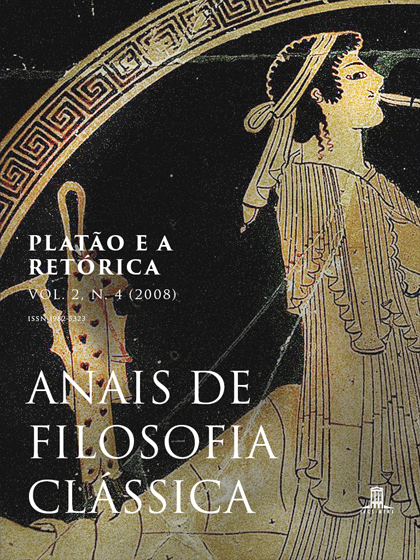O Fedro e a escrita
DOI:
https://doi.org/10.47661/afcl.v2i4.17003Keywords:
Platão. Fedro. linguagem.Abstract
Resumo:
Este artigo analisa uma passagem do diálogo Fedro de Platão (274b-278b) relevante para a idéia de que é através de uma experiência vital que se deve inscrever o conhecimento filosófico na alma do aluno. As críticas à linguagem escrita, presentes no fim do Fedro, nos apontam para uma supremacia do modo existencial como o indivíduo se relaciona com o tema investigado sobre os seus discursos ou suas conclusões racionais. É que tais discursos nem sempre estão relacionadas com os lógoi inscritos dentro de sua alma. São esses lógoi que realmente determinam o que alguém realmente sabe sobre um assunto, e é com eles que se deve travar uma "luta" para que haja uma transformação verdadeira naquele que ingressa na filosofia.
Palavras-chave: Platão. Fedro. linguagem.
Abstract:
This paper analyses a passage from Plato´s Pheadrus (274b-278b) relevant for the fact that it is through a vital experience that one must inscribe the philosophical knowledge in the student´s soul. Plato explicitly criticizes written language in this passage, and it points to the supremacy of the existential mode in which the individual faces philosophy in detriment of its rational conclusions. This is so because these conclusions are not always attached with the lógoi inscribed in the student´s soul. These inscribed lógoi determine if someone really knows about a subject, and if one wishes to really enter philosophy, he has to transform radically the lógoi already inscribed in one´s soul.
Keywords: Plato. Pheadrus. language.


